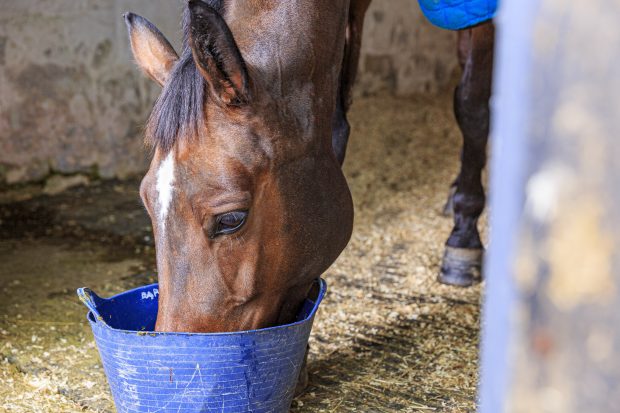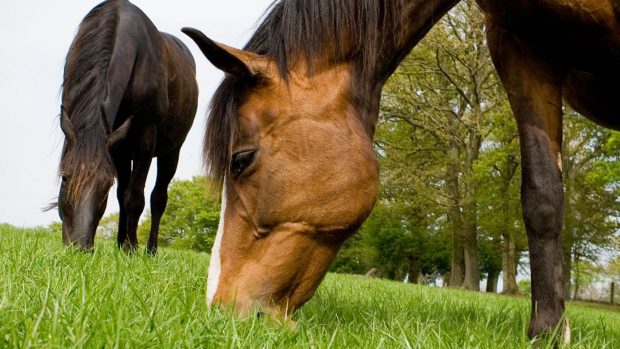Protein has had a mixed image for a long time. On one hand, it is seen as the all-round provider of strength, health and vitality, and on the other it is thought to instigate laminitis, bumps, tying-up and the like.
In reality, horses – like humans – don’t need a lot of protein in their diet. Horses at rest need approximately 8% of their diet to be protein, while horses in work need between 10 and 12%.
Compound feeds are often higher in protein than these requirements to compensate for low supplies in hay. Hayseed, for instance, can be as low as 4% protein.
Feeds for breeding and young stock and horses in hard work are not only higher in protein than those for horses at rest, but also significantly higher in energy. If anything goes wrong with horses on these feeds, protein tends to get the blame because it is quoted on the bag label, unlike the high-energy sources that are the more likely culprits.
The equivalent of a good steak supper for a horse is one containing soya bean meal, because of its good amino acid make-up. Protein is made up of about 20 amino acids, 11 of which are essential to the horse’s diet, the other is can recharge itself. Without an adequate supply of these essential amino acids, especially lysine and threonine, the horse can’t use any of the protein in its diet efficiently.
Protein is:
Protein is not:
|
||
 |
||


 Get up to 19 issues FREE
Get up to 19 issues FREE TO SUBSCRIBE
TO SUBSCRIBE 



